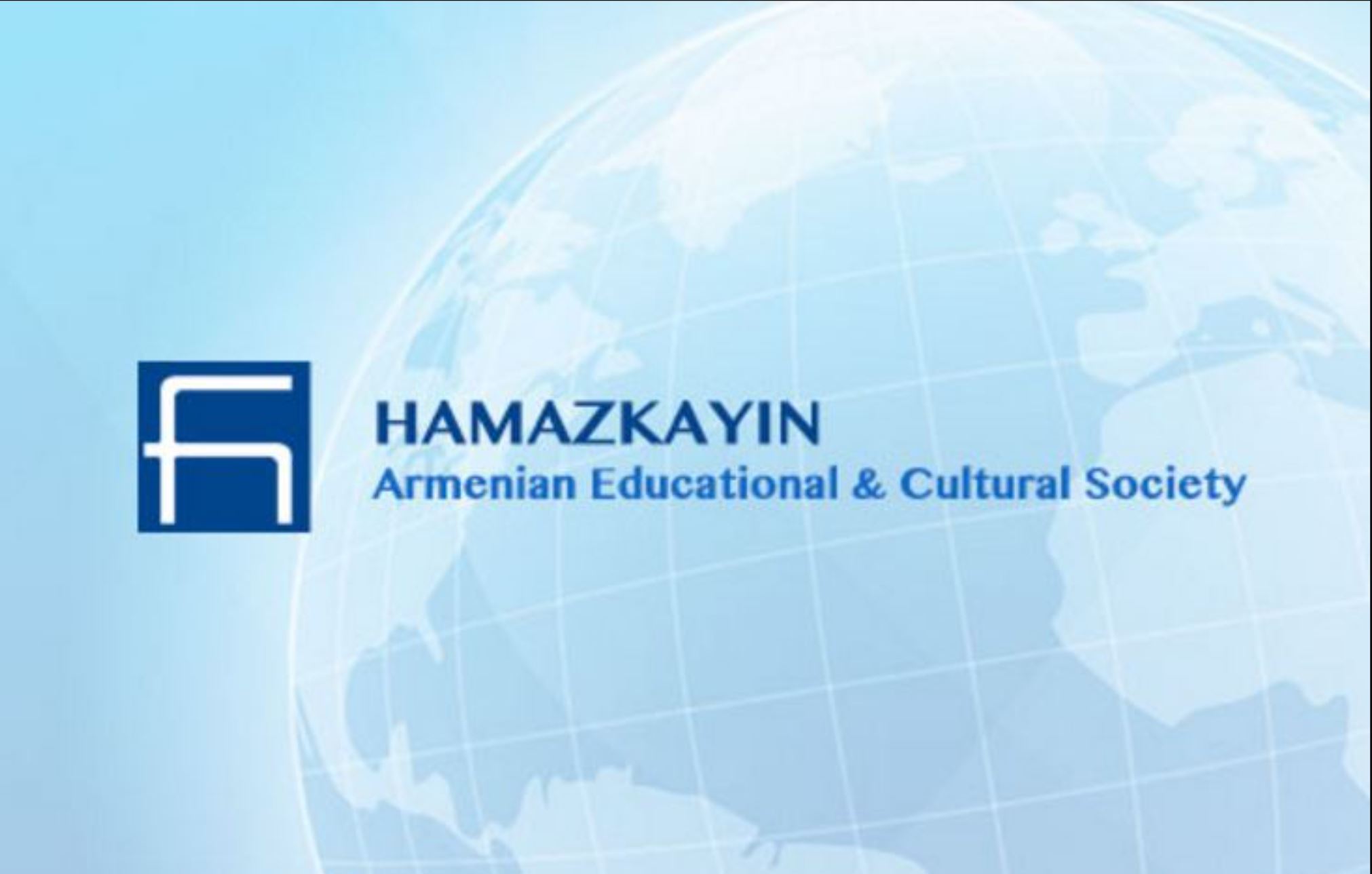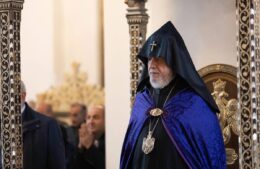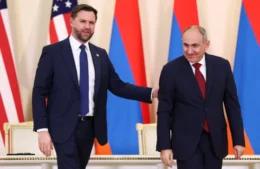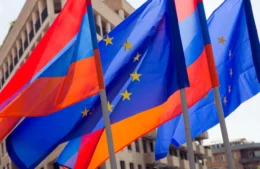Hamazkayin urges the Pontifical Gregorian University to issue a public apology for hosting the conference on ‘Christianity in Azerbaijan’
- (0)

Hamazkayin Armenian Educational and Cultural Society’s Central Executive Board published an open letter urging the Pontifical Gregorian University to issue a public clarification and apology for hosting the conference ‘Christianity in Azerbaijan’ and enabling the state of Azerbaijan to carry out its mission to rewrite history.
To: His Eminence Rev. Card. José Tolentino de Mendonça, (Grand Chancellor of the Pontifical Gregorian University)
Fr. Mark A. Lewis, SJ (Rector, v)
Subject: Academic Integrity, Cultural Heritage, and Human Rights Violations: Response to the Azerbaijani-Sponsored Conference “Christianity in Azerbaijan: History and Modernity”
Your Eminences,
We, the undersigned representatives of the Hamazkayin Armenian Educational and Cultural Society (“Hamazkayin”), its affiliated schools, publishing houses, and regional chapters worldwide, write to express our deep concern and profound moral outrage regarding the international conference entitled “Christianity in Azerbaijan: History and Modernity,” held on April 10, 2025, at the Pontifical Gregorian University in Rome.
As a Catholic institution renowned for its commitment to truth, justice, and scholarship, the Pontifical Gregorian University holds a special responsibility to ensure that its academic platforms are not misused to promote historical revisionism, cultural erasure, or state-sponsored propaganda. The aforementioned conference, organized by the Azerbaijani Foreign Ministry, regrettably undermined these values.
The event in question advanced a deeply controversial and academically discredited narrative that attempts to appropriate Armenian Christian heritage in the South Caucasus, particularly in Nagorno-Karabakh (Artsakh), under the guise of “Caucasian Albanian” continuity. Such claims serve to justify the systematic erasure of Armenian cultural, religious, and historical presence in the region—a presence documented through thousands of churches, monasteries, khachkars (cross-stones), manuscripts, and inscriptions.
This is not merely an academic disagreement. The misrepresentation of Armenian heritage is being used as a pretext to justify genocidal policies of ethnic cleansing and cultural destruction. Over 150,000 indigenous Christian Armenians have been forcibly uprooted from their ancestral homeland in Nagorno-Karabakh from 2020 to 2023, effectively erasing a continuous and deeply rooted presence spanning millennia. The exclusion of Armenian scholars from this conference further compounds the injustice, violating principles of academic pluralism, scholarly fairness, and inclusivity. It silences the very voices who have lived, preserved, and inherited this cultural legacy, thereby undermining the credibility of any dialogue claiming to explore historical and religious realities in the region.
International legal and human rights frameworks affirm the right of all peoples to participate in and preserve their cultural heritage. The UNESCO Convention Concerning the Protection of the World Cultural and Natural Heritage (1972), the Hague Convention for the Protection of Cultural Property in the Event of Armed Conflict (1954), and Article 15 of the International Covenant on Economic, Social and Cultural Rights all safeguard the cultural expressions of communities, especially in post-conflict settings. The destruction of Armenian heritage in Nakhichevan, where thousands of khachkars were bulldozed, and the recent erasure of monuments in Nagorno-Karabakh, have been widely condemned by scholars and international watchdogs.
We are especially troubled that the University, perhaps inadvertently, has allowed itself to become a platform for a state narrative aimed at obfuscating ongoing human rights violations and cultural genocide. This stands in sharp contradiction to the values of the Holy See and the Catholic Church’s longstanding commitment to interfaith understanding, historical truth, and justice for oppressed communities.
We respectfully urge the Pontifical Gregorian University to:
- Issue a public clarification and apology for hosting this conference enabling the state of Azerbaijan to carry out its mission to rewrite history.
- Condemn any attempts to distort or appropriate Armenian Christian heritage as part of state-sponsored cultural policies;
- Refrain from future collaboration with state-directed entities involved in denialism, revisionism, or the erasure of indigenous peoples’ cultural and religious legacies;
- Host a symposium or academic roundtable in partnership with international experts and Armenian scholars to address the true history and rich Christian heritage of the region. Such a gathering would not be to re-establish historical truths that are already well-documented, but rather to correct the academic imbalance created by the exclusion of affected voices and to reaffirm the principles of scholarly integrity and historical justice.
This is a moment for reflection, responsibility, and moral clarity. Academic institutions must remain vigilant against the instrumentalization of knowledge and must work to amplify rather than silence the voices of those most affected. We trust that the Pontifical Gregorian University will live up to its principles and contribute to a more truthful and just reckoning with the past.
Sincerely,
Hamazkayin Armenian Educational & Cultural Society
Central Executive Board
Zakar Keshishian Lorig Sabounjian-Dzadourian
Chairperson Secretary


















